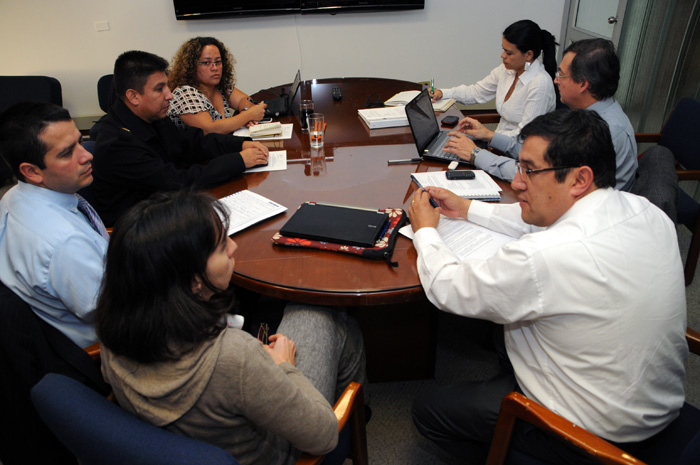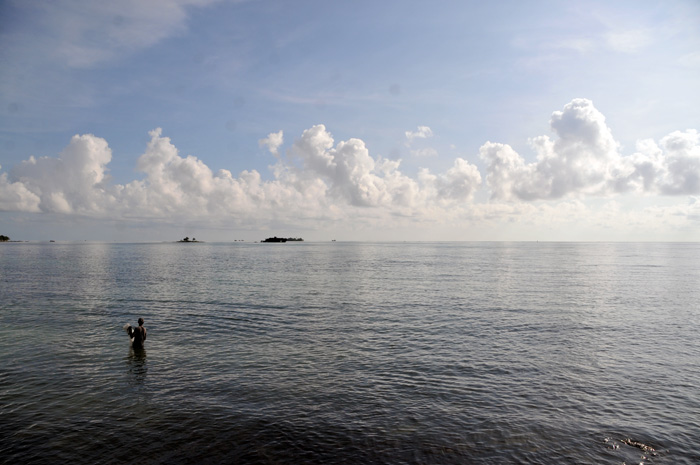In the same investigation, it is also estimated that by 2100 some islands like Santa Catalina and Providencia will disappeared.
Against this background, the Institute of Sea and Costal Investigations (Invemar) and the Institute of Hydrology, Meteorology and Environmental Studies of Colombia (Ideam), in charge of the study, decided to create a network of sea research centers.
Law 99, which regulates the environmental topic in Colombia, forces Invemar, part of the Ministry for the environment, to organize this network with several institutions in order to work in marine and costal projects related to climate change. Universidad Nacional de Colombia, apart from being part of the board of directors, makes part of such network.
"There is a committee of directors that approves the strategies and functioning of this network, and a technical committee made by technicians from different institutions that are in charge of elaborating proposals or research projects to develop activities in the sea," explained Gonzalo Andrade, research vice rector at Universidad Nacional de Colombia.
"The agenda was approved: research strategies, vulnerability of the sea, coasts, climate change and the participation of some institutions in this process depending on their capacities are part of it," added the expert.
According to Andrade, it is necessary to think about the careers which are part of the network and how they will face the problems the sea and clime are going through, as well as the possibility of creating a subject to revise and analyze this situation.
For now, one of the first research projects the network will carry out and that was approved to start is the erosion of mangroves in the golf of Uraba.
In addition to the increase in the sea level, the erosion in the Caribbean Coast is part of the network"s agenda. Although it is not related to climate change, maritime contamination due to mining and organic waste dumped in the rivers is on the list as well.
Something particular about our nation is that Colombian maritime territory represents almost 50% of its total area. Besides, the country counts on an approximate area in the Caribbean of 532,162 km2 and 359,955 km2 in the Pacific, for an approximate total of 892,118 km2.
"Regarding climate change, we can start with some actions from the government and the institutions, in combination with good planning strategies. We cannot affirm that to solve the problem we have to strengthen CARs. This is not possible, we have to find solutions, definitive solutions," asserted Andrade.
The network is composed by Universidad Nacional de Colombia, Universidad del Valle, Universidad de Antioquia, Jorge Tadeo Lozano University, the Maritime General Directorate (Dimar) and the Institute of Sea and Costal Investigations (Invemar).
 Correo Electrónico
Correo Electrónico
 DNINFOA - SIA
DNINFOA - SIA
 Bibliotecas
Bibliotecas
 Convocatorias
Convocatorias
 Identidad UNAL
Identidad UNAL





